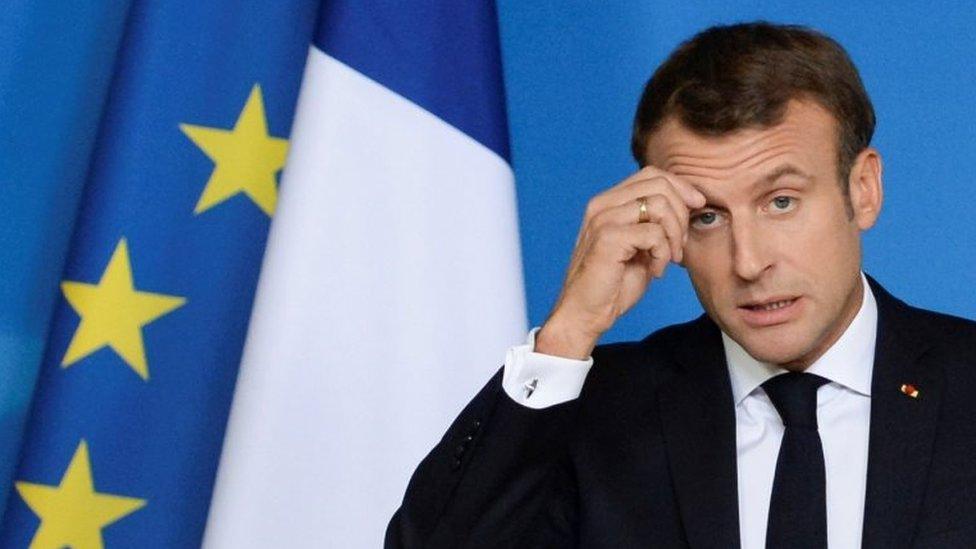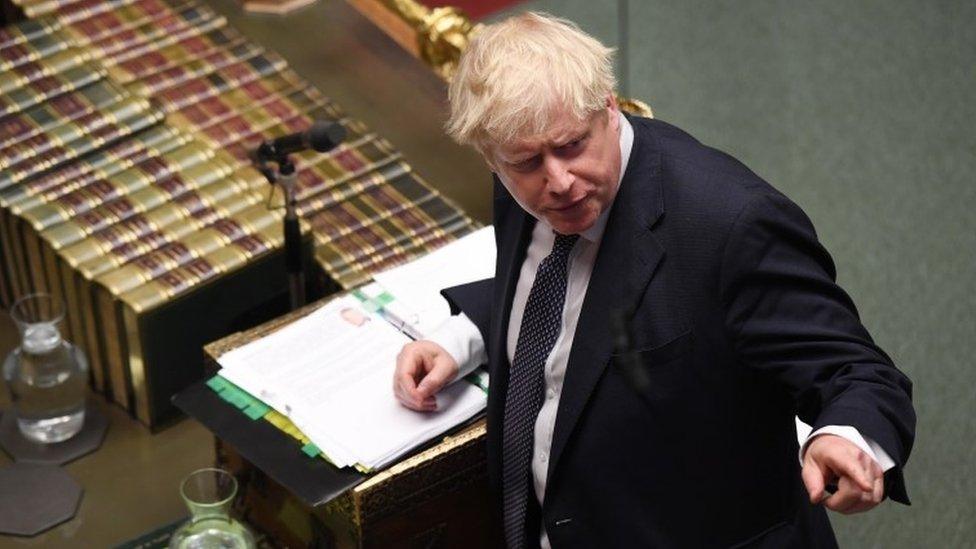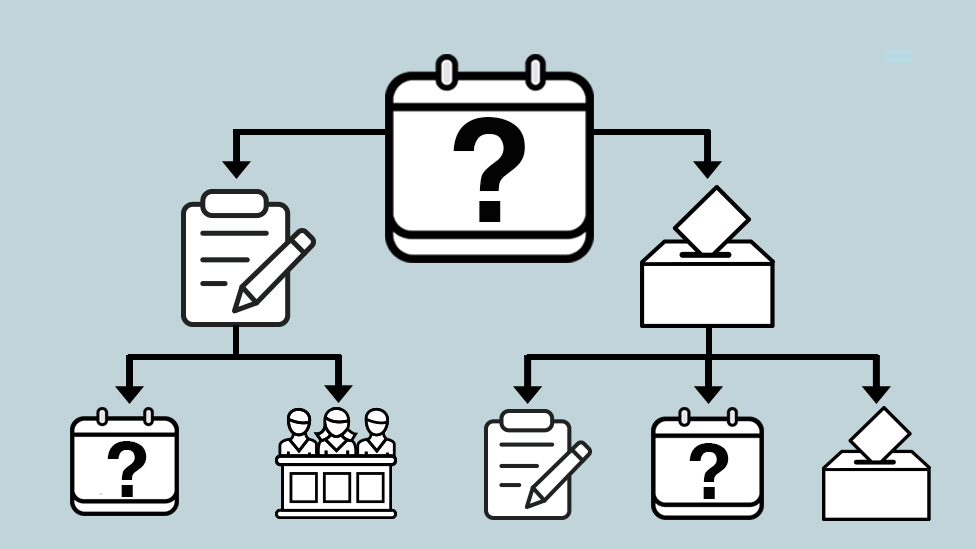Brexit: Deja vu as France digs in heels over extension
- Published

The French president is fed up with how long the Brexit process is taking
There's a strong sense of déjà vu in the EU's Brexit extension discussions.
As Westminster waits and the prime minister calls for an official EU decision to be made, France is acting as a spoke in the wheels. Much as it did back in spring when leaders debated the April Brexit extension.
A consensus is forming amongst most EU countries, including powerful Germany, to grant the three-month delay outlined in Boris Johnson's letter to Brussels requesting a new Brexit extension. They hope to formally announce this on Friday. Ambassadors representing the 27 EU leaders are expected to meet mid-morning in Brussels.
But France worries a 12-week extension could encourage more UK indecisiveness or a general election which may prove inconclusive on Brexit.
President Emmanuel Macron favours a short, sharp Brexit delay; encouraging MPs and the UK government to concentrate on ratifying the newly-negotiated Brexit deal.
Mr Macron is fed up with the more than three-year EU focus on Brexit and the ever-present threat of a no-deal scenario. He'd rather shift attention to reforming the EU itself, to the benefit (he believes) of the countries remaining in it.

Boris Johnson insists the UK will leave the EU next week with or without a deal
Of course, the French president knows Brexit won't be over if and when the UK leaves. Brexit Chapter Two, the negotiations on a comprehensive EU-UK trade deal will likely be lengthy and complex, but they will largely be the competence of the European Commission, landing far more rarely on EU leaders' in-trays.
But will President Macron really veto the three-month extension Germany and others favour? He has already angered a number in the EU of late by putting his foot down on widening the bloc to include two new member states.
If he refuses to agree with an EU majority over the new Brexit extension, then Mr Macron will be using up exactly the kind of good will/openness to consensus decision-making that he needs if he wants to make headway on his EU reform agenda.
Is the length of the Brexit extension really worth that to him?
It could well be that Mr Macron is using the days before the extension decision is formally announced to stamp his feet that:
a) The UK should not take Brexit extensions for granted and
b) That the extension time should be used for something concrete.

Boris Johnson's Brexit deal


There is an active EU debate right now (as there was prior to the last Brexit extension being granted) over whether to attach specific conditions. For example, to say that the EU will only grant the extension if the UK begins a new parliamentary timetable aimed at ratifying the Brexit deal or if it holds a general election.
But while it's easy for EU politicians to make assertions like that, it's far more complex to formally put these conditions into writing. It risks looking like Brussels meddling in the domestic politics of a sovereign EU country. So, as with the previous extension, there are unlikely to be formal take-it-or-leave-it conditions attached.
And why are the majority of EU leaders in favour of approving the UK-requested three-month extension? Well, they believe it:
a) Prevents the EU having to agonise over two extensions in quick succession. A short one to see if the Brexit deal can be ratified in the UK parliament and, if not, then a second extension soon after, to allow the UK to hold elections or a referendum.
b) Most EU leaders think opting for the extension time asked for by UK (the three months mentioned in the PM's request letter and in the Benn Act compelling him to write that letter) is the most neutral thing Brussels can do, considering the heated political climate in the UK.
Germany, for example, worries that offering more than three months could be viewed in the UK as the EU "trying to keep the UK in as long as possible" while opting for a shorter time could be regarded as an attempt to meddle in UK parliamentary procedure by "forcing" MPs hands over the ratification of the Brexit deal or even as the EU "throwing the UK out".
That explains the EU majority preference for three months but, as with the last Brexit delay, Brussels dubs this a 'flextension'. The UK would not be compelled to remain in the EU for the full extra 12 weeks. It would leave as soon as the UK parliament and the European parliament ratified the Brexit deal.
However, watching the ongoing divisions in Parliament - inside Boris Johnson's Conservative party over whether to prioritise elections vs getting the Brexit deal ratified and also the splits in the Labour party to back, or not to back calling a general election, EU figures mutter in private, that they half expect to be asked for yet another Brexit extension come January.
- Published21 October 2019

- Published13 July 2020

